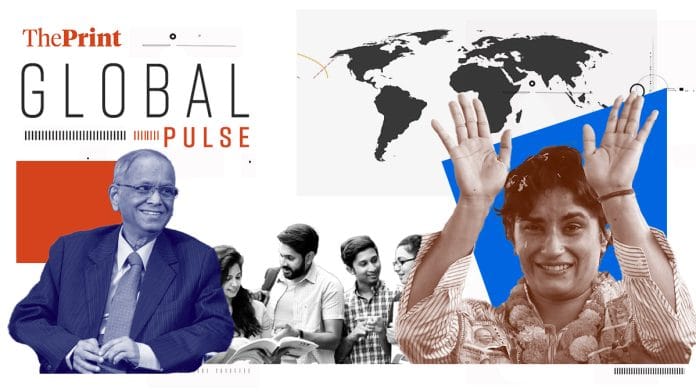New Delhi: Fewer Indians are applying to study in Australia, and it is causing a lot of panic Down Under.
The Sydney Morning Herald reports that the Australian government’s new policies on immigration have hit the education sector hard. Applications to study at Australian universities from India — the second biggest “source country” of international students — have come down by a staggering 66 per cent.
“But the early fall in applications suggests the effect of Labor’s policies to bring down booming student numbers became more pronounced from July, which is when the government hiked student application fees from $710 to $1600,” the report says.
It further explains how fewer students from South Asia have been approved for visas — part of an overall change in migration policy that is now tougher on applications.
Australian Education Minister Jason Clare had said the new policies were meant to strengthen the sector’s integrity and make it more sustainable. “Australia will continue to welcome international students in a way that is sustainable and reinforces quality for all students,” he had said.
It’s tough news for Indians all around — sheer demographics work against them. Either they are defending their position in a coveted minority or are part of a discarded majority. The competition is relentless, The Guardian reminds its reader, while reporting on another area of potential improvement in India — a work culture with too-long hours.
Centred around the recent death of a 26-year-old chartered accountant at EY India, the Guardian reports: “India now has one of the most overworked labour forces in the world, enduring longer hours than in China, Singapore and even Japan, a country renowned for its relentless work culture. On average, Indians work 13 hours longer every week than an employee in Germany.”
This high number is because of two main reasons — job insecurity, especially in top corporate firms, and a culturally reinforced expectation of “hard work”. Since 90% of those working in India are in the informal sector that cannot be scrutinised, the weight of scrutiny falls on the formal sector.
“Narayana Murthy, one of the founders of India’s biggest IT firm Infosys, suggested last year that Indians should be prepared to work 70-hour weeks to ensure the growth of the country,” the Guardian writes. “Employees in other sectors, from media to entertainment, said the problem was endemic there too.”
And then, there are those who switch from one gruelling schedule to another. Reuters profiles wrestler-turned-politician Vinesh Phogat on the campaign trail as Haryana heads to polls, with results expected on 8 October.
Vinesh Phogat is a “celebrity” in her native constituency of Julana, Haryana, where her family of wrestlers was the subject of the film Dangal. The Congress has won Julana only four times since 1967. But many, especially women, hope the party’s fortune will change with Vinesh Phogat on the ticket, Reuters reports.
“I used to stay home all day. But hundreds of people visited me every day, asked me to not abandon the spirit of the fighter,” she told Reuters.
On the global stage, Bloomberg worries that the growth powering India’s equity derivatives market is driven entirely by inexperienced investors with an unhealthy appetite for risk.
“Annual turnover in the market is now greater than the entire output of Asia’s third-biggest economy. Dabbling in these options can land investors with big losses when bets go wrong,” the piece warns.
India’s futures and options turnovers soared to a record $6 trillion in February, compared to less than $150 billion five years ago. There’s been a similar trend in the US but because options trading in the US is curbed by shorter, zero-day options, there’s less chance that a seller will incur a loss as there’s less chance that the value of the options will change before they expire.
Regulators are now worried that the spike in short-term speculative bets could cause financial instability — ”hyperactive trading” has led to “increased volatility.”
“The measures from SEBI that come into effect in November erect hurdles for short-term speculative bets, such as limiting index option contracts with weekly expiries,” Bloomberg reports. “Market strategists estimate at least a third of equity options volume will evaporate after the new rules take effect.”
Meanwhile, Asia’s largest defence expo kicked off in South Korea on Wednesday — the Korea Army International Defense Industry Exhibition (KADEX). And it looks like India is in demand.
Defence contractors are especially eyeing India and Vietnam, Nikkei Asia reports as India is trying to reduce its reliance on Russia. India ranks among the top five buyers of Russian weapons.
“India is another country expanding imports of weapons from outside Russia. New Delhi is switching from Russian Sukhoi fighter jets to the French Rafale,” it reports. “Russia provided 58% of the weapons imported by India in the five years through 2018.”
(Edited by Madhurita Goswami)






